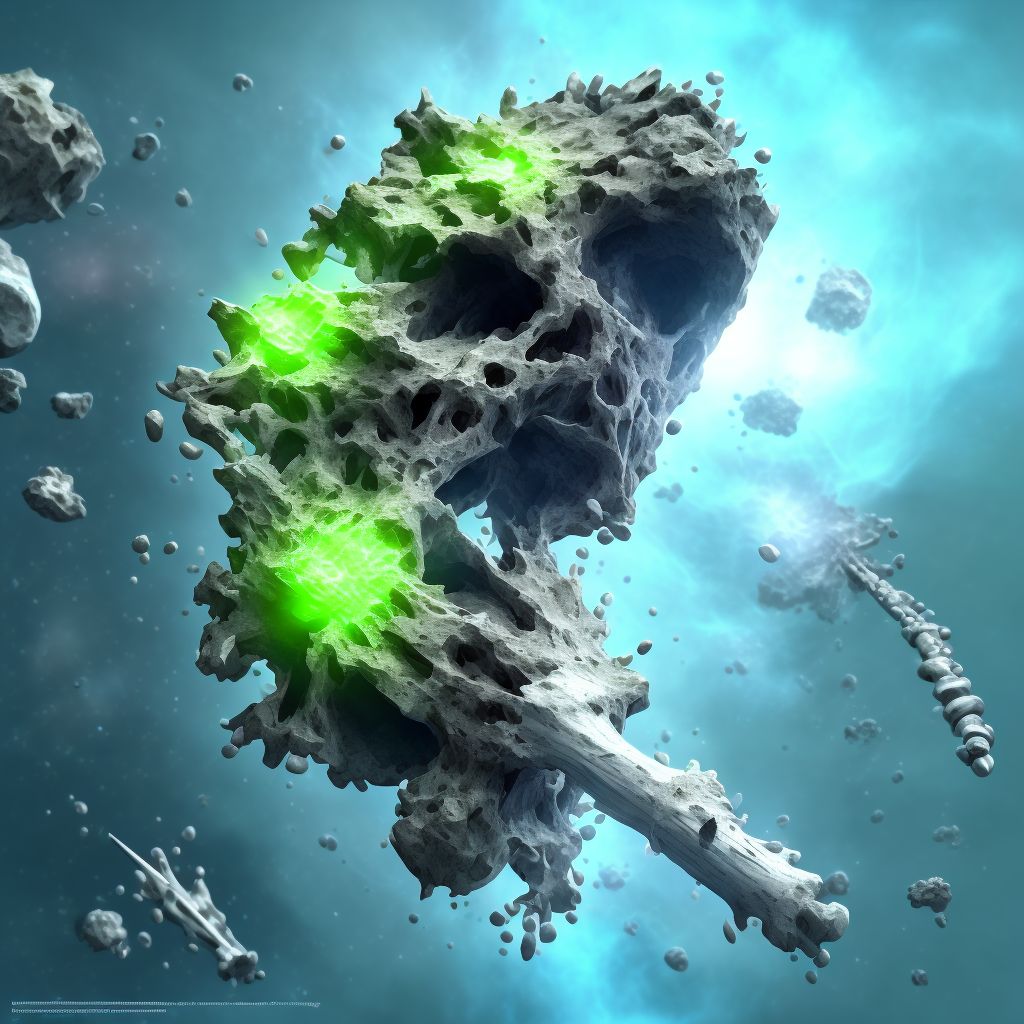
Displaced segmental fracture of shaft of unspecified tibia, subsequent encounter for open fracture type IIIA, IIIB, or IIIC with delayed healing Save
ICD-10 code: S82.263J
Disease category: S82.263: Displaced segmental fracture of shaft of unspecified tibia
Displaced Segmental Fracture of the Tibia Shaft: Understanding Open Fracture Types IIIA, IIIB, or IIIC with Delayed Healing
A displaced segmental fracture of the shaft of the tibia is a severe injury that requires immediate medical attention. This type of fracture occurs when the tibia bone breaks into multiple pieces, resulting in a fragmented and displaced bone structure. In some cases, this fracture can lead to an open fracture, exposing the broken bone to the external environment.
Subsequent encounters for open fracture types IIIA, IIIB, or IIIC refer to follow-up visits after the initial treatment of the open fracture. These classifications are based on the severity of the soft tissue injury associated with the fracture. Open fractures of type IIIA involve a wound less than 1 cm in size, type IIIB have a wound greater than 1 cm with extensive soft tissue damage, and type IIIC involve arterial injury requiring repair.
One of the challenges associated with these types of fractures is delayed healing. Delayed healing occurs when the fractured bone takes longer than expected to heal. This can be the result of various factors, such as infection, poor blood supply, inadequate immobilization, or patient-related factors like smoking or diabetes.
When encountering a patient with a displaced segmental fracture of the tibia shaft and delayed healing, healthcare professionals must carefully evaluate the condition to determine the most appropriate course of action. This may involve additional diagnostic tests, such as X-rays or CT scans, to assess the healing progress and identify any complications that may be hindering the healing process.
- Thorough examination: A comprehensive evaluation of the fracture site, soft tissue condition, and patient's overall health is essential.
- Monitoring: Regular follow-up visits allow healthcare professionals to assess the progress of healing and address any concerns or complications that may arise.
- Wound care: Proper wound management, including cleaning, dressing, and infection prevention, is crucial for successful healing.
- Pain management: Adequate pain relief is important to ensure the patient's comfort during the healing process.
It is important to note that the information provided here is for educational purposes only and does not constitute medical advice. Treatment options for displaced segmental fractures of the tibia shaft with delayed healing should be discussed with a qualified healthcare professional.
In conclusion, a displaced segmental fracture of the shaft of the tibia can result in open fractures of varying severity. When encountering delayed healing in such cases, healthcare professionals must take appropriate steps to assess the condition, monitor the healing progress, and provide necessary care to ensure successful recovery.
Treatment of Displaced segmental fracture of shaft of unspecified tibia, subsequent encounter for open fracture type IIIA, IIIB, or IIIC with delayed healing:
Treatment Options for Displaced Segmental Fracture of the Shaft of Unspecified Tibia with Delayed Healing
A displaced segmental fracture of the shaft of the tibia is a complex and severe injury that requires proper medical attention. When the fracture does not heal within the expected timeframe, it is referred to as delayed healing. In the case of an open fracture type IIIA, IIIB, ...
To see full information about treatment please Sign up or Log in